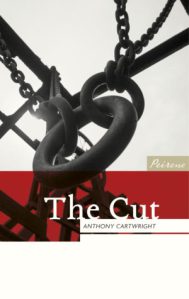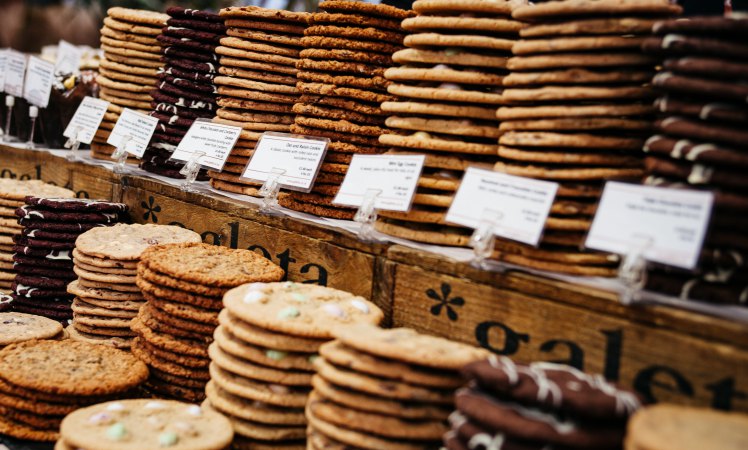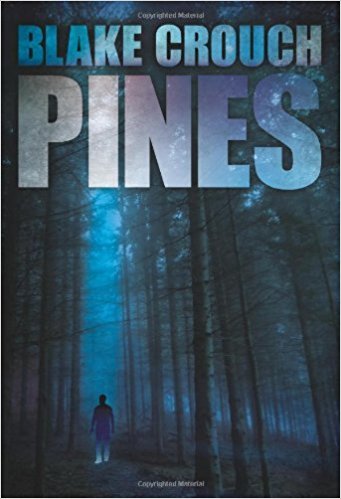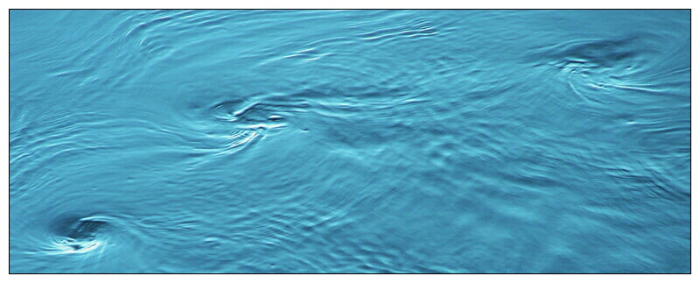
The Cut, by Anthony Cartwright, is set in the Black Country, where the skeletons of the industrial past are now regarded by those who have benefited from it the most as a blight. Cairo Jukes has lived in Dudley all his life. He feels indivisible from the land. His ancestors were amongst the men who dug the canals and tunnels, worked the foundries. None of these jobs now exist. Cairo works zero hour contracts cleaning up the old industrial sites ready for redevelopment, a tidying up and sweeping away for those who can afford the new order. He does what is needed to put food on the table for the four generations of family who share his home.
Grace is an award winning documentary film-maker from London. She travels to Dudley looking to interview locals about the upcoming referendum on Brexit, recognising that they are different from those she knows from her life. Most treat her with suspicion, veering away from her approach and the camera:
“She felt like there was some kind of invisible veil between her and these people. These people. And this is how it began, she supposed, prejudice on the scale of a whole country.”
Cairo agrees to be interviewed, speaking in an accent that, when played back on news cycles and Twitter, is given subtitles. What he says is ‘We’ve had enough’. He talks of ‘you people’, those who appear on the telly and believe what is happening is everybody’s fault but their own. Grace is drawn to this rough, unexpectedly cogent man.
The reader is offered snapshots of the Jukes family’s lives. Cairo’s daughter, Stacey-Ann, introduces herself to Grace as Ann. Judgements are made even over names. They are unused to talking to anyone like Grace. Her ways are foreign to them, and theirs to her. Despite their conversations, words cannot be found to bridge the gap.
It is this that the novel offers, a bridge between perception and reality. In packaging Brexit as a protest about immigration or even the EU the depths and complexity are disregarded, what is felt standing on a sun dappled mountaintop reduced to a sterile description of river and rock. Brexit was about how large swathes of the population are routinely admonished, their concerns dismissed.
“People are tired […] tired of other people getting things that you and people like you had made for them, tired of being told you were no good, tired of being told that what you believed to be true was wrong, tired of being told to stop complaining, tired of being told what to eat, what to throw away, what to do and what not to do, what was right and wrong when you were always in the wrong.”
Grace recognises that there is a disconnect but struggles to accept that she may sometimes be the one to be wrong. It is easier to find others wanting.
“‘This place is a hole’, Franco says to her and sits down.
‘I’ve never heard you say that anywhere. Hungary, the border camps, Serbia, when you came back from Syria. Never. But Dudley is the end of the road for you. Look out of the window. It’s a sunny afternoon in the English Midlands.’ […]
‘Those people have got an excuse, a reason for being how they are, but these people,’ Franco says.
‘Ah, these people, she says, these people'”
Cairo feels increasingly impotent. He sees that many in the rest of the country want the likes of him gone, that walls are built with their well meaning ways. When Grace appears to offer him a new hope and then as quickly takes it from him, something in him snaps. The denouement, which was touched on at the beginning, is shocking.
The writing in this work is stunning. It is sparce, poetic in places, and bang on point.
Required reading for anyone who despairs of Brexit, or anyone tempted to glance at the Stacey-Anns of our world and then self-righteously opine. It offers a plot driven window into a clashing of cultures. It deserves the attention of all.
My copy of this book was provided gratis by the publisher, Peirene Press.
Advertisements Share this:




